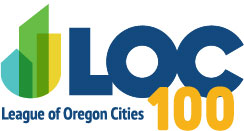LOC News
House Passes Carbon Cap Bill
A bill that would implement a statewide cap on greenhouse gas emissions passed the House this week on a vote of 36-24. HB 2020would establish the “Oregon Action Climate Program” to meet updated greenhouse gas reduction goals for the state, with a goal of reducing emissions to 80 percent below 1990 levels by the year 2050. The bill was scheduled for a third reading and final vote Thursday on the Senate floor, but without a quorum of 20 senators, the Senate was unable to vote on any legislation, including HB 2020. Senate Republicans have indicated they will not return to the Capitol without an agreement that there will be further amendments to HB 2020 to address some of the concerns expressed previously.
HB 2020 requires the Climate Policy Office (CPO), established in Section 4 of the bill, to place a cap on emissions from “covered entities” beginning in 2021. The CPO would also be required to set annual allowance budgets for the years 2021 through 2050. Entities that are permitted as an air contamination source and that have annual regulated emissions that meet or exceed 25,000 metric tons of carbon dioxide equivalent will be considered as “covered entities” subject to cap. The CPO has issued a list of potentially covered entities that may be subject to the cap. View the document
How does a carbon cap work? HB 2020 will require covered entities to obtain a tradable allowance for each metric ton of carbon dioxide equivalent emitted annually. The 2021 allowance budget will reflect a baseline calculation of forecasted emissions attributable to all covered entities. The annual allowance budget will be reduced each year as necessary to achieve the greenhouse gas reduction goals as established in the bill (45 percent below 1990 levels by 2035; and 80 percent below 1990 levels by 2050).
Who is regulated under HB 2020? Providers of electricity, natural gas, transportation fuels and certain industries (primarily manufacturing) are among those that will be directly regulated under the program. The legislation specifies how allowances will be provided to various regulated sectors, with some sectors, including electric companies, receiving allowances at no-cost for a specified period. With the transportation fuels sector representing approximately 40 percent of the state’s greenhouse gas emissions, the impact of the legislation is anticipated to represent an approximate 22-cent per gallon increase in the cost of fuel.
How will revenues be generated and spent? HB 2020 l will result in the creation of a market for allowances to be purchased by covered entities through a state auction or traded in a secondary market. The bill requires the Climate Policy Office to set an auction floor price for 2021 that will increase by a fixed percentage each calendar year. Funds will be directed to the Climate Investments Fund, Just Transition Fund, Common School Fund, or, a Transportation Decarbonization Investments Account for those generated through the transportation fuels sector. The bill specifies the types of project eligible for funding through the established funds, and specific requirements for use of those funds. Fifty percent of the funds in the Transportation Decarbonization Investments Account will be used by the Oregon Transportation Commission for eligible projects, with the other 50 percent set aside for grants for transportation projects for cities, counties and metropolitan planning organizations. Eligible transportation projects must: promote greenhouse gas emission sequestration and mitigation; promote the adaptation and resilience of natural and working lands, fish and wildlife resources, communities, the economy and the state’s infrastructure in the face of climate change and ocean acidification; or promote assistance to households, businesses and workers impacted by climate change or climate change policies. The Oregon Department of Transportation will establish rules for the competitive grant application process.
Contact: Tracy Rutten, Intergovernmental Relations Associate – trutten@orcities.org
Last Updated 6-21-19

